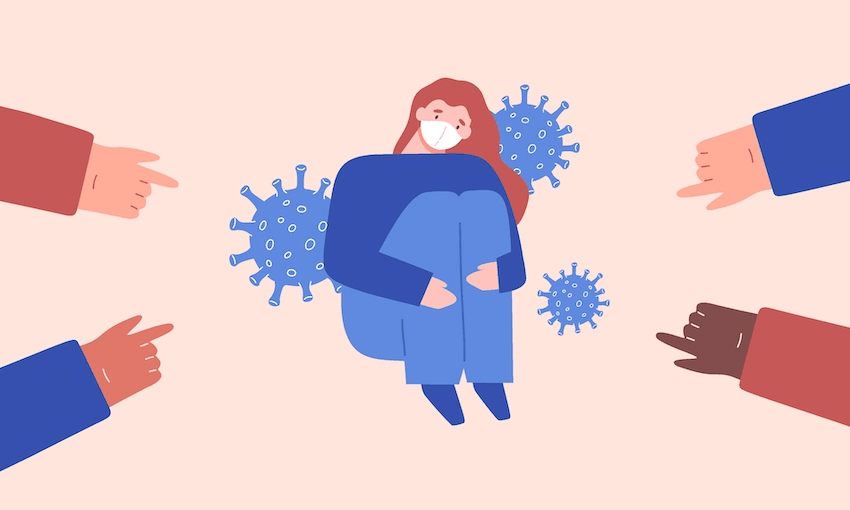The chorus of online judgement that appears each time we have a community case could have grave implications for New Zealand’s Covid-19 response, writes Ayesha Verrall, an infectious diseases doctor and associate minister of health.
It’s never easy telling someone they have HIV. But having done it dozens of times, I have grown more comfortable with it. I’ve learnt that although patients might struggle at first, I can reassure them that with treatment, time and support they can lead a healthy and full life.
One of the striking and sad things I’ve learnt through these conversations is that for many people, their diagnosis doesn’t come as a surprise. In fact, some will reveal they’ve been worried for months they have HIV, but they’ve feared getting a test because they were worried about being rejected by their partner, family or friends. Sadly, the delay in getting tested can lead to worse health outcomes for them and their sexual partners.
As an infectious diseases doctor, my training helped me develop the compassion and non-judgement attitude to treat people with infectious diseases well. I tried to instil these in medical students by inviting men and women living with HIV to share their experiences with my class. I wanted the students to learn that with modern medicines, HIV was no longer deadly, but the stigma can still kill.
Of course stigma isn’t unique to HIV. It is as old as the plague. Stigma lurked in the background whenever I treated someone for tuberculosis, syphilis or leprosy. Stigma is nothing to do with the patient. It is a social attitude and one of the worst forms of prejudice – prejudice against the sick.
Now, working in government, I see the ways stigma could undermine our Covid-19 response. Recently I’ve been concerned by the online judgement heaped on people with Covid-19. Health officials share each community case’s details and movements to ensure people who might have been exposed can isolate and get tested. It isn’t meant to be an opportunity to pass judgement on their life or habits.
The online shaming can be vicious and I’m concerned it will make people reluctant to come forward for testing when they need it. And every time someone doesn’t get a test, it gives the virus a chance to get away on us. In fact, public health officials tell me there have been instances of this.
So it is in our interests to dial down the outrage, even when news of a community case ramps up our anxiety. We aim for government messages to be non-judgemental and we also need the public’s help to reduce stigma. Remember the virus is the problem, not the people.
At times during the Covid-19 pandemic stigma has been directed at whole segments of the community and posed challenges to our public health response. This mirrors the experience with HIV where homophobia was, and still is, a barrier to promoting safe sex or testing. Successful AIDS activists directly addressed this prejudice to enable health inventions. In the case of Covid-19, racist abuse was directed at Asians early in the pandemic and in August, Māori and Pacific communities were negatively stereotyped in mainstream and social media. Ministry of Health research has confirmed this has influenced testing behaviour in these communities, so we continue to work hard to rebuild this trust.
We’ve also heard reports of workers at our border or managed isolation and quarantine facilities or their whānau being excluded from schools or medical centres, because others are concerned about the risk of Covid-19. It’s true they are at risk, but they bear that risk for all of our protection. Excluding these workers makes it harder for us to sustain a system that is protecting us all.
Fundamentally, stigma arises from our fear of getting infected. Perhaps there is some false reassurance in psychologically drawing a barrier between “us”, the well, and “them”, the sick. We need to resist this urge to cast anyone out of the team of five million when we depend on them coming forward for care and contact tracing to stay safe.
I find two things helpful for managing my fears. Firstly, I know it is the objective truth that I live in the safest place on earth. Secondly, I know the answer to the “could it be me?” question is “yes”. I could be the person with Covid-19 or the person with HIV or the person with tuberculosis. And I know if I were them how I would like to be treated. It is by recognising our common vulnerability that we get through this together.
